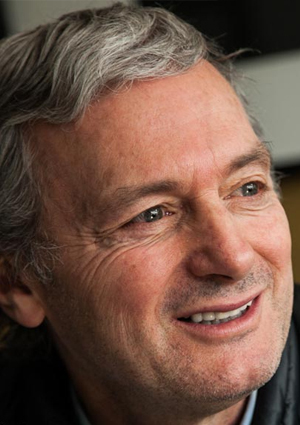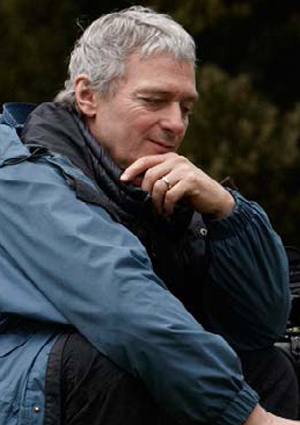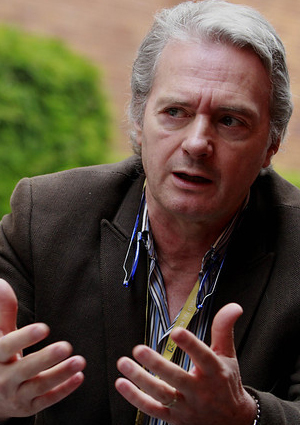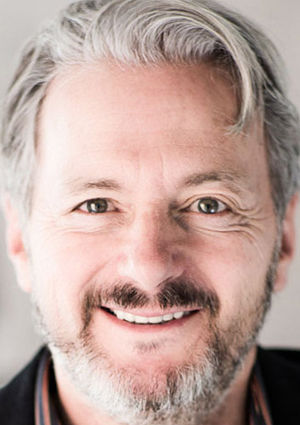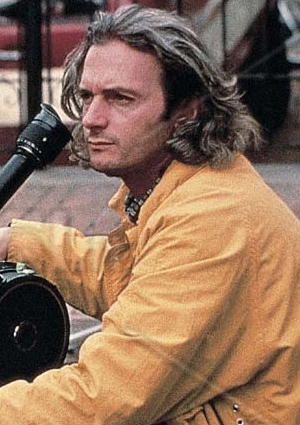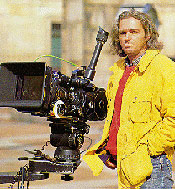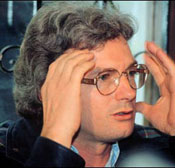Director, Screenplay, Producer, Producers Associate, Director of photography, Camera, Co producing
Sergio Cabrera
This film and television director, screenwriter, and producer was born in Medellin on April 20, 1950, son of a Spanish actor exiled in 1936 and a Colombian actress. He has directed some of the most emblematic films and TV series in Colombia in recent years.
At age ten, Sergio Cabrera moved with his family to China, where he completed high school and actively participated in the country’s Cultural Revolution. At eighteen he returned to Colombia, where he joined the EPL (Popular Army of Liberation) guerrilla movement for four years. In 1973 he returned to China, where he studied philosophy at the University of Beijing and created his first amateur film projects. He then moved to England, where he studied film at the London Polytechnic School and the London Film School.
He returned to Colombia in 1977, where he directed his first short films, worked as a director of photography, and directed around 500 commercials in the 1980s, several of which are among the most highly esteemed in Colombia. His most notable projects as director of photography include Amor Ciego (1980) and Padre por accidente (1981), and his work as camera operator for Luis Ospina’s Pure Blood.
In 1989 he released his debut film Técnicas de duelo (A Matter of Honor), which received the award for Best First Film at the Cartagena International Film Festival; the Silver Makhila Award for Best First Film at the Biarritz International Festival of Iberian and Latin American Film (France); the Special Jury Prize at the Latino Film Festival in New York; and the Best Film Award and Critics’ Award at the Gramado Festival of Latin American and Brazilian Film (Brazil).
Public renown came with his second feature film, La estrategia del caracol (The strategy of the snail), which premiered at the Venice Film Festival in 1993, becoming his first film to be commercially screened outside of the country and an iconic film of Colombian cinema. The strategy of the snail received, among other awards, the Audience Award and the International Confederation of Art Cinemas Award in Biarritz (France); the Golden Spike for Best Film, the Audience Award, and the Youth Prize at SEMINCI in Valladolid (Spain); the Golden Colón for Best Film and the International Federation of Film Societies (IFFS) Award at the Huelva Ibero-American Film Festival (Spain); the Second Place Coral Award, the Coral Award for Best Music (Germán Arrieta), and the Coral Award for Best Art Direction (Enrique Linero, Luis Alfonso Triana) at the Festival of New Latin American Cinema in Havana (Cuba); and the Ecumenical Jury Prize at the Berlin International Film Festival (Germany, 1994).
His filmography also includes Águilas no cazan moscas (1994), which took part in the Official Selection of the Venice Film Festival, received the Grand Golden Colón Audience Award at the Huelva Film Festival, and won the Best Latin American Film Award at Sundance; Ilona llega con la lluvia (Ilona Arrives with the Rain) (1996), which entered the Official Selection at Venice and took home the Grand Audience Award at the Biarritz Festival; Golpe de estadio (Time Out) (1998), which brought a Special Mention for Best Actor for César Mora at the Havana Festival; Perder es cuestión de método (The Art of Losing) (2004), Official Selection at Venice and winner of the Audience Award and the Silver Apple for Best Director at the Latino Film Festival in New York; and Everybody Leaves (2015), which was screened in the Galas section of the Cartagena International Film Festival (FICCI).
Cabrera has also directed several documentaries, such as Diario de viaje (1978), Elementos para una acuarela (1996), and Ciudadano Escobar (2004).
Since 1992, he has directed television series in Colombia and Spain, including La mujer doble (Caracol TV, 1992); Escalona (Caracol TV, 1992); Candela (Colombia, 1996); Severo Ochoa (Spain, 2001); Cuéntame cómo pasó (Tell Me How it Happened) (Spain, 2004-2008), the most award-winning Spanish TV series in history; the mini-series about former president Adolfo Suárez (Antena 3, Spain, 2010); La Pola (RCN TV, 2010); and Dr. Mata (RCN TV, 2014), which won him the award for Best Director of a Soap Opera or TV Series at the 31st India Catalina Awards for Colombian Television.
Cabrera has received numerous accolades over his career, such as the first Best Artist of the Year Award, granted by the Embassy of Spain in Colombia in 2010. In the educational arena, he has served as Director of the Filmmaking Department at the International School of Film in San Antonio de los Baños, Cuba (2000), and as Film Professor at the Universidad Javeriana in Bogota (1992).
Filming
Director
EVERYBODY LEAVES (2015)
Director
THE ART OF LOSING (2004)
Director
GOLPE DE ESTADIO (1998)
Director
DIARIO DE VIAJE (1996)
Director
ILONA LLEGA CON LA LLUVIA (1996)
Director
ÁGUILAS NO CAZAN MOSCAS (1994)
Director
LA ESTRATEGIA DEL CARACOL (1993)
Director
TÉCNICAS DE DUELO (1988)
Director
Director
ELEMENTOS PARA UNA ACUARELA (1986)
Director
DIARIO DE VIAJE (1978)
Screenplay
EVERYBODY LEAVES (2015)
Screenplay
THE ART OF LOSING (2004)
Screenplay
GOLPE DE ESTADIO (1998)
Screenplay
ILONA LLEGA CON LA LLUVIA (1996)
Screenplay
ÁGUILAS NO CAZAN MOSCAS (1994)
Screenplay
LA ESTRATEGIA DEL CARACOL (1993)
Screenplay
TÉCNICAS DE DUELO (1988)
Screenplay
Screenplay
ELEMENTOS PARA UNA ACUARELA (1986)
Screenplay
DIARIO DE VIAJE (1978)
Producer
LA ESTRATEGIA DEL CARACOL (1993)
Producers Associate
EL PASEO 4 (2016)
Producers Associate
EVERYBODY LEAVES (2015)
Producers Associate
GOLPE DE ESTADIO (1998)
Producers Associate
ILONA LLEGA CON LA LLUVIA (1996)
Producers Associate
ÁGUILAS NO CAZAN MOSCAS (1994)
Producers Associate
TÉCNICAS DE DUELO (1988)
Director of photography
CON SU MÚSICA A OTRA PARTE (1984)
Director of photography
PADRE POR ACCIDENTE (1982)
Director of photography
AMOR CIEGO (1980)
Camera
Camera
PURA SANGRE (1982)
Camera
AMOR CIEGO (1980)
Co producing
EVERYBODY LEAVES (2015)

